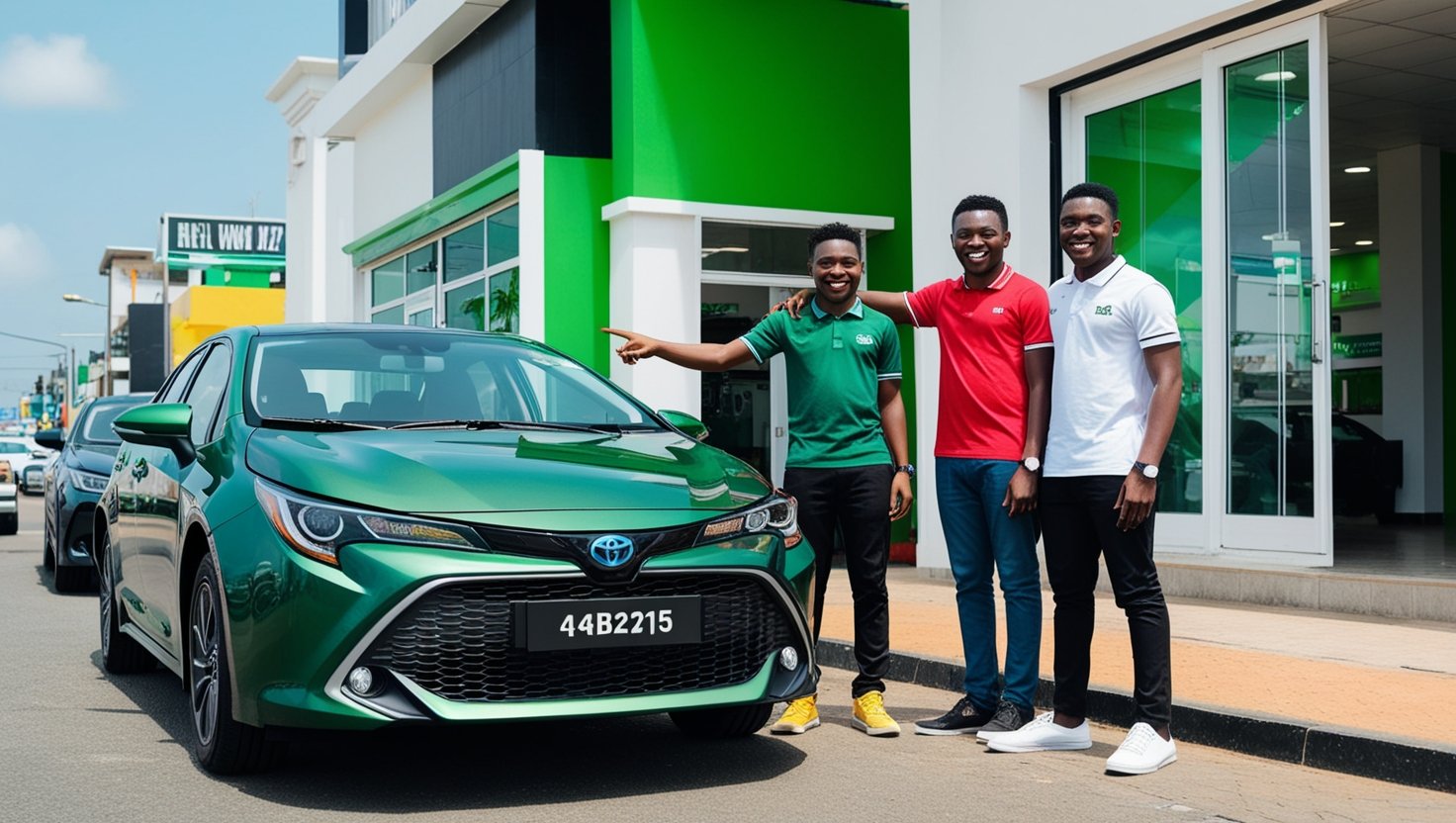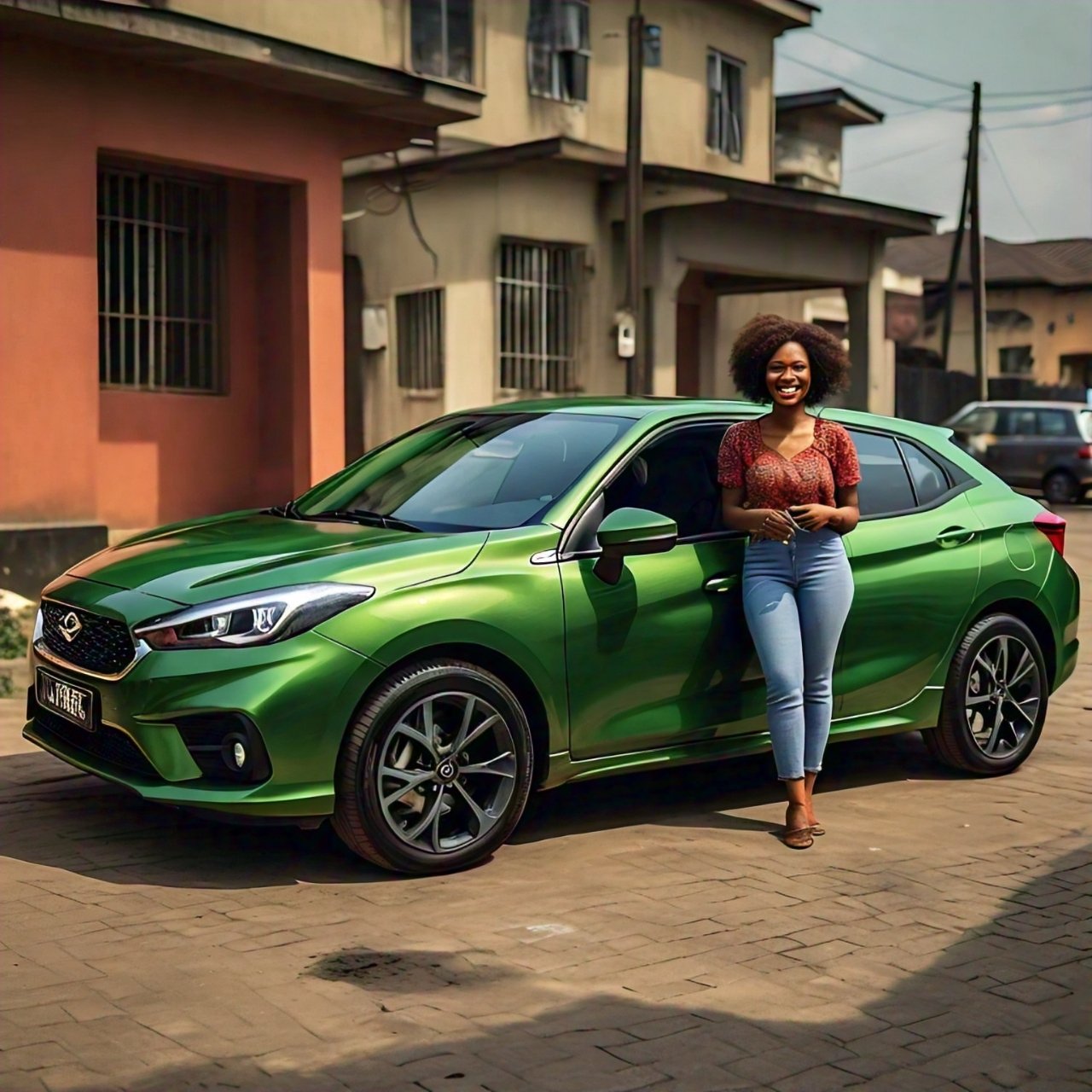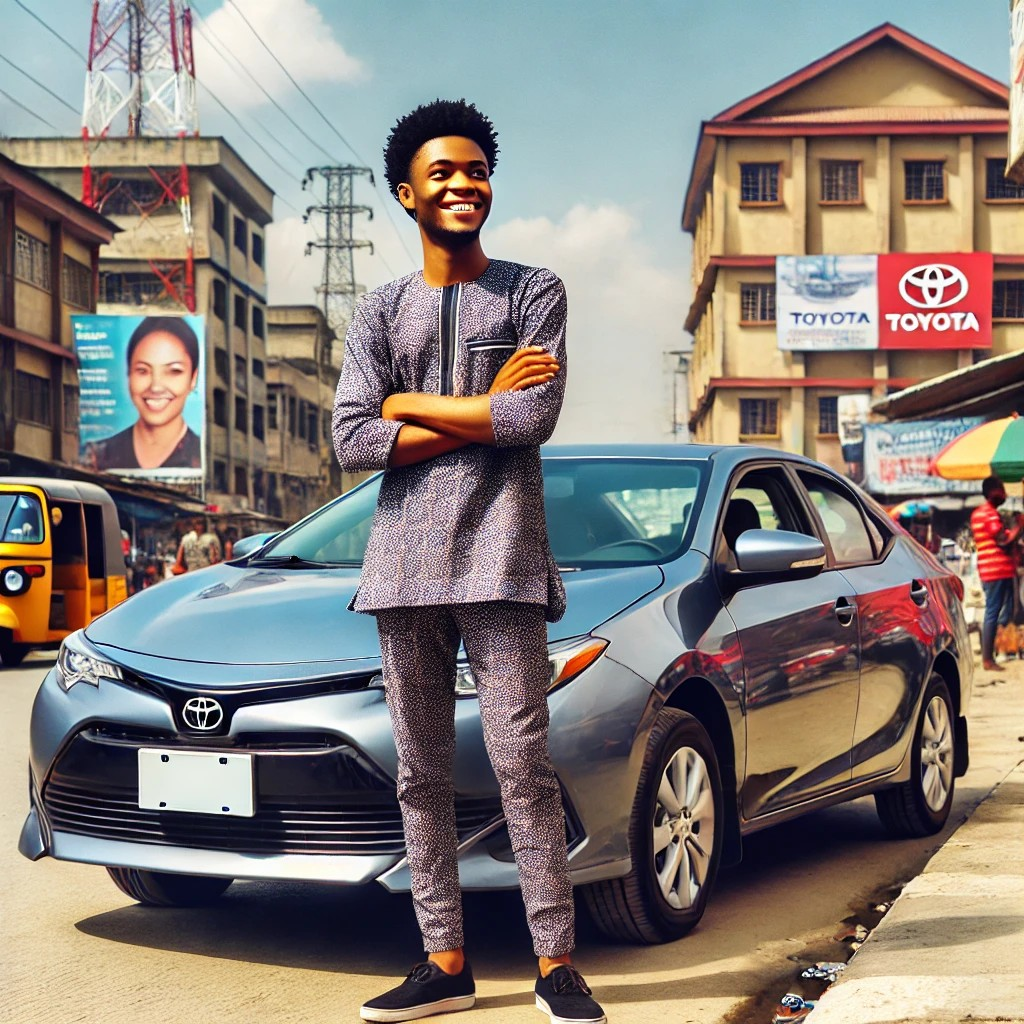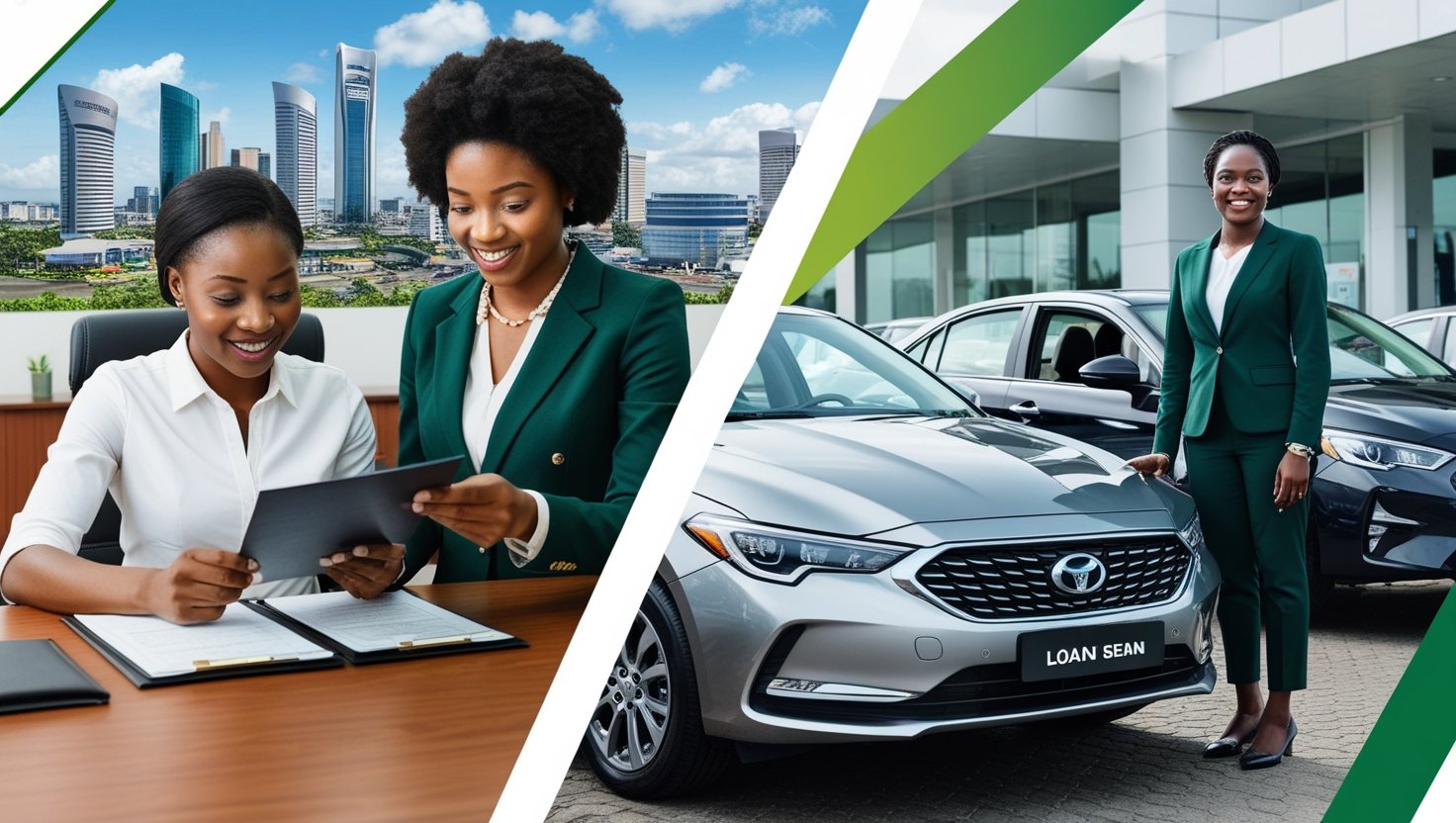Are you looking for an affordable car that you can rely on as a first-time buyer in Nigeria? Whether you’re commuting through the bustling streets of Lagos or driving to work in Abuja, choosing the right car is crucial.
In 2025, finding a vehicle that combines affordability, reliability, and low maintenance costs in the phase of current economic realities, is key to making your first car purchase a smart investment.
In this guide, we’ll walk you through some of the best options that suit Nigeria’s roads and driving conditions, ensuring you make the best decision for your budget and lifestyle!
Key Considerations for First-Time Car Buyers in Nigeria
Affordability vs. Long-Term Reliability
One of the biggest dilemmas for first-time car buyers in Nigeria is finding the right balance between affordability and long-term reliability.
It’s tempting to go for the cheapest option, especially when you’re working with a tight budget. But from personal experience, I can tell you, cheaper isn’t always better when it comes to cars.
Sometimes, buying a less expensive car upfront can lead to more expensive repairs down the line, making it a money pit. You really want to think long-term here.
Ask yourself, Is this car going to hold up in a few years, or will I be stuck in a mechanic’s shop more than on the road?
Look for cars that have a reputation for durability, even if they cost a little more. Trust me, the investment will pay off in the long run.
Importance of Fuel Efficiency for Nigerian Roads
Fuel efficiency is a game changer, especially on Nigerian roads where traffic and unpredictable fuel prices can hit your pocket hard just as its going on currently.
It’s one of those things you might overlook at first, but after a few months of driving, you’ll realize how much of a difference it makes. Think about how often you’ll be stuck in Lagos traffic, or how long your daily commute might be.
A car with poor fuel efficiency will drain your wallet faster than you’d think. Look out for cars that have a proven track record of being fuel-efficient in our local environment.
Brands like Toyota and Honda are often praised for their fuel economy, but be sure to research specific models, as it can vary a lot.
Also, don’t forget to factor in the rising cost of fuel when calculating your car budget.
How to Assess Maintenance Costs and Spare Parts Availability
Before committing to any car, whether new or used, it’s super important to consider how easy it is to maintain.
I’ve seen too many friends rush into buying fancy cars only to realize that spare parts are either hard to find or ridiculously expensive. You don’t want to be in a situation where you need a simple replacement part, but it’s either unavailable or costs half as much as the car itself.
In Nigeria, some brands are known for having widely available and affordable parts (think Toyota, Honda, or Nissan), while others can be trickier to maintain.
Make sure to check with a local mechanic or even do a little research at auto part stores to see how accessible parts are for the car you’re eyeing.
Maintenance costs should be one of your top considerations when making a decision.
New vs. Used (Tokunbo) Cars: What Works Best for Your Budget?
The age-old debate: new or used? Tokunbo (used, imported cars) can be a great deal, especially if you’re on a budget, but there are some trade-offs to consider.
New cars come with the peace of mind that everything is, well, new. You won’t have to worry about any immediate repairs, and many come with warranties anyway. But they are also more expensive upfront.
On the other hand, Tokunbo cars are more affordable and give you more options within your price range. The downside? You might not always know the car’s history, and there’s a higher chance of buying something that needs repair sooner rather than later.
In my experience, if you’re going the used route, always insist on a full inspection and test drive. If you’re still undecided, check out our guide on A Comprehensive Guide to Buying Your First Car in Nigeria (2025), which offers more insights into this decision.
Top 5 Affordable and Reliable New Cars for First-Time Buyers in Nigeria (2025)
Choosing your first car can be overwhelming, especially when you’re balancing affordability with reliability. You want something that won’t break down on you within a few months, but you also don’t want to break the bank.
Here’s a roundup of five new cars that first-time buyers in Nigeria should definitely consider in 2025.
1. Toyota Corolla
When you think about reliability and low maintenance costs, the Toyota Corolla almost always comes to mind. This car is a staple on Nigerian roads, and there’s a good reason for it.
Not only is the Corolla known for being fuel-efficient, but it’s also built to last. It’s one of those cars you can drive for years without having to worry about major repairs, which is a huge plus for anyone buying their first car.
One thing I love about the Corolla is its availability—multiple dealerships across Nigeria stock it, so finding one shouldn’t be too difficult. And hey, if you are still considering whether to go new or used, check out our Essential Items to Look Out for When Buying a New or Used Car in Nigeria (2025) for a handy guide to help you make that decision.
2. Kia Rio
If you’re looking for something with a solid price point and decent fuel economy, the Kia Rio might be just the ticket.
It’s perfect for city driving due to its compact size, making it ideal for navigating through Lagos traffic. Plus, Kia offers manufacturer warranty options that can give you peace of mind as you start your driving journey.
The Rio has a reputation for being dependable, and while it may not have the same name recognition as a Toyota or Honda, it’s definitely worth considering if you want a balance of affordability and reliability.
3. Honda Civic
The Honda Civic is one of those cars that’s built to last, and that’s no exaggeration. Known for its long lifespan and ability to handle tough driving conditions, the Civic is a car that won’t let you down.
One of the biggest selling points of the Civic is its high resale value in Nigeria. You may spend a little more upfront, but down the line, it holds its value much better than many other cars.
This makes it a great option for first-time buyers who might want to trade up in a few years. For more on which cars suit first-time buyers best, head over to Top 10 Cars for First-Time Buyers in Nigeria (2025).
4. Hyundai Accent
The Hyundai Accent is another cost-effective option that packs modern features without draining your bank account. It’s got everything a first-time buyer could want: good fuel economy, reliable performance, and easy access to spare parts.
Hyundai has also been expanding its service centers in Nigeria, so maintaining your Accent won’t be a hassle. This makes it an attractive choice for those looking for a stylish yet practical vehicle.
5. Nissan Almera
Finally, we have the Nissan Almera, which is a budget-friendly vehicle with a solid reputation on Nigerian roads.
The Almera is great if you’re looking for something low-cost but reliable. It’s known for its low maintenance and repair costs, making it a smart choice if you want to avoid costly repairs down the line.
Plus, it’s designed to handle Nigeria’s road conditions without too much fuss. For those still undecided between new and used, the Almera is also available as a Tokunbo option, which we cover in more depth in A Comprehensive Guide to Buying Your First Car in Nigeria 2025.
Top 5 Affordable and Reliable Tokunbo (Used) Cars for First-Time Buyers
Buying a Tokunbo (used) car is a smart move for first-time buyers in Nigeria, especially if you’re working with a tight budget but still want something dependable.
The good news is, there are plenty of great options out there that have stood the test of time.
Here are five Tokunbo cars that offer a mix of affordability, reliability, and ease of maintenance for new buyers.
1. Toyota Camry (2008-2015 models)
It’s hard to make a list of affordable and reliable cars in Nigeria without including the Toyota Camry. The 2008-2015 models are particularly popular in the Tokunbo market, and for good reason.
These cars have excellent reliability ratings, making them a go-to choice for anyone looking to invest in their first ride.
The Camry has a strong resale value, which is always a plus if you plan to upgrade later on.
One of the best things about the Camry is the easy availability of spare parts, so you won’t have trouble maintaining it.
It’s also well-loved for its solid fuel economy, making it a sensible choice for Nigerian roads. Plus, if you’re still on the fence between new and used, our A Comprehensive Guide to Buying Your First Car in Nigeria 2025 offers insights that could help you decide.
2. Volkswagen Golf (2007-2012 models)
The Volkswagen Golf has built a reputation for being a fuel-efficient and durable car, and the 2007-2012 models are great options if you’re going the Tokunbo route. These cars are affordable, and one of the biggest perks is the minimal maintenance costs.
It’s a popular choice among younger drivers because it’s compact and easy to handle, especially in city traffic.
The Golf is known for its impressive longevity, so you can expect it to keep running smoothly for years, even as a used car. And thanks to its popularity, finding a Golf on the Tokunbo market is relatively easy.
3. Ford Focus (2009-2014 models)
The Ford Focus may not be the first brand you think of in Nigeria, but it’s gaining a reputation in the Tokunbo market. If you’re looking for something that’s highly affordable yet safe and reliable, this is a great choice.
The 2009-2014 models, in particular, offer good safety ratings and are known for being easy to drive. One of the key selling points of the Focus is how readily available it is in the Tokunbo market, so if you’re in a hurry to buy a car, you won’t have to look far to find one in good condition.
For more about essential items to check when buying Tokunbo, see Essential Items to Look Out for When Buying a New or Used Car in Nigeria (2025).
4. Mazda 3 (2008-2013 models)
The Mazda 3 is one of those cars that offer a great balance between affordability, performance, and reliability. If you’re after a car that drives well and still fits within your budget, the 2008-2013 models should definitely be on your radar.
Not only is it a fun car to drive, but it also has a high resale value, which is rare for used cars in this price range.
The Mazda 3 is well-known for its strong engine and decent fuel efficiency, making it a practical option for long-term use. Even as a Tokunbo, it’s a solid investment.
5. Peugeot 307 (2005-2010 models)
The Peugeot 307 might not be as common as the Toyota Camry or Volkswagen Golf, but it’s definitely a hidden gem when it comes to Tokunbo cars in Nigeria. The 2005-2010 models are known for their strong durability and impressive road performance.
What I really like about the 307 is that it’s affordable yet still offers good handling and comfort, making it ideal for both city and highway driving. Spare parts are relatively easy to come by, and maintenance costs are quite low.
If you’re someone who values a well-built car that won’t require constant trips to the mechanic, the Peugeot 307 should be on your list.
Key Features to Look for in Affordable Cars
When you’re shopping for an affordable car in Nigeria, especially as a first-time buyer, you need to think beyond just the price tag. Sure, affordability matters, but the long-term value is even more important.
There are a few key features that can really make a difference in how much you enjoy driving your car on a daily basis—and how well it handles the unique challenges of Nigerian roads.
Let’s dive into what to look for when balancing affordability with practicality.
Fuel Efficiency and Engine Capacity for City Driving
If there’s one thing you’ll appreciate on Nigerian roads, it’s fuel efficiency. Gas prices tend to fluctuate a lot, and you want a car that won’t burn through fuel quickly, especially with all the traffic in cities like Lagos or Abuja.
Look for cars with smaller engine capacities—something between 1.5L and 2.0L is ideal for city driving. These engines tend to offer a good balance between power and fuel economy.
A smaller engine also means you’ll save on running costs in the long term, which is a win-win. And if you’re wondering about good options, check out our Top 5 Affordable and Reliable New Cars for First-Time Buyers in Nigeria (2025) for models that score high on fuel efficiency.
Comfort Features for Nigerian Climate
Anyone who’s driven in Nigeria knows how hot it can get—so air conditioning is not just a luxury, it’s a necessity. When you’re shopping for an affordable car, make sure it comes with a reliable A/C system.
Some budget-friendly models try to cut costs by compromising on this feature, but trust me, in Nigeria’s sweltering heat, you’ll regret it if your car can’t keep you cool.
Power steering is another comfort feature you shouldn’t overlook. Navigating tight corners and heavy traffic in cities can be a headache without it, so make sure any car you’re considering comes with this as standard.
Durability and Adaptability for Nigerian Road Conditions
Road conditions in Nigeria can be unpredictable. One minute you’re driving on a smooth expressway, and the next, you’re dodging potholes that could easily swallow a small car. That’s why durability is key when buying a car here.
You want something with a tough suspension system that can handle the bumps and rough patches. SUVs and crossovers tend to be better at this, but there are also some compact cars that are built with tougher suspensions. Look for a car that’s been proven to handle these challenges.
Models with higher ground clearance will also make your life easier, especially during rainy season when roads can get flooded or muddy.
For used car options that handle Nigerian roads well, check out Top 5 Affordable and Reliable Tokunbo (Used) Cars for First-Time Buyers.
Low-Cost Maintenance and Availability of Spare Parts
When buying an affordable car, always consider maintenance costs. Some cars might be cheap to buy but expensive to maintain, especially if spare parts aren’t readily available in Nigeria.
Stick to brands that have a good track record for low-cost maintenance and easy access to spare parts.
Toyota, for example, is well-known for this. It’s also a good idea to ask around or do some research about which models local mechanics are familiar with.
The last thing you want is to be stuck with a car that’s hard to fix or that requires expensive imported parts. A little due diligence can save you from future headaches.
How to Finance Your First Car Purchase
Buying your first car can feel like a huge milestone, but it also comes with some serious financial decisions. Not everyone can buy a car outright, especially when you’re starting out. That’s where financing comes into play.
In Nigeria, there are several options to help you get behind the wheel without having to pay the full price upfront. Whether you’re eyeing a brand-new car or a reliable used one, let’s break down the best ways to finance your first car purchase.
Overview of Car Financing Options for First-Time Buyers
One of the most common ways to finance a car in Nigeria is through bank loans. Most major banks offer auto loans that allow you to pay for your car over a period, typically ranging from 1 to 5 years.
The key thing to remember here is the interest rate—it can vary significantly depending on the bank and the loan term, so shop around.
Another popular option is hire purchase, where you pay for the car in installments while using it, but ownership only transfers to you once you’ve paid the full amount. This is a good route if you’re okay with not having immediate ownership but want to spread out the payments.
For those who prefer a more community-based approach, cooperative societies offer a unique financing alternative. Many workers in Nigeria belong to cooperatives that provide low-interest loans or hire purchase plans for members.
The advantage here is that cooperative loans often come with more favorable terms and less stringent requirements compared to banks. Plus, they tend to be more flexible if you encounter financial hiccups down the line.
Leasing Options for New Cars
If buying isn’t on the cards just yet, leasing might be a good option. Car leasing allows you to drive a new car for a set period, usually between 2-4 years, while making monthly payments.
The cool part is that you get to drive a brand-new car with all the latest features, but without the long-term financial commitment of full ownership.
At the end of the lease, you can choose to buy the car (at a depreciated value) or return it and lease a new one.
It’s an attractive option if you’re someone who enjoys the idea of upgrading cars frequently or if you’re unsure about committing to a full purchase.
Just remember that leasing comes with its own restrictions, like mileage limits and penalties for wear and tear.
Tips for Finding the Best Deals on Used Cars
If you’re going for a used or Tokunbo car, there are ways to finance your purchase while still snagging a great deal. One tip is to negotiate directly with sellers for payment plans. Some dealerships and independent sellers are willing to work out installment deals, especially if you’re purchasing a higher-priced used car.
Also, look into car auctions, where you can sometimes find great deals on used cars that are being sold by banks, companies, or individuals.
Keep in mind that even with financing options for used cars, you should still make sure the car has been inspected by a trusted mechanic.
Tokunbo cars can sometimes come with hidden issues, so investing a little extra upfront for an inspection could save you from costly repairs down the road. For more insight on the best used cars for first-time buyers, check out Top 5 Affordable and Reliable Tokunbo (Used) Cars for First-Time Buyers.
Budgeting for Hidden Costs: Registration, Insurance, and Maintenance
One of the biggest mistakes first-time car buyers make is overlooking the hidden costs of owning a car. It’s easy to focus on the price tag and monthly payments, but you also need to account for things like registration fees, insurance, and regular maintenance.
In Nigeria, vehicle registration can be a bit pricey depending on the state, and insurance is mandatory for all drivers.
Comprehensive insurance might be a bigger upfront cost, but it’s worth it in case of accidents or theft.
Maintenance is another biggie, especially for used cars, where parts may need replacing sooner.
Pro tip: Always budget a little extra for these hidden costs, so you’re not caught off guard.
It’s also wise to factor in fuel costs—with fluctuating fuel prices, a fuel-efficient car can save you a lot in the long run.
Conclusion
Finding a car that fits both your budget and driving needs as a first-time buyer in Nigeria doesn’t have to be stressful.
By considering affordable, reliable new or Tokunbo models, you’ll be able to drive away with a great vehicle that’s built to last.
Take the time to evaluate key features like fuel efficiency and maintenance costs, and don’t forget to explore financing options to make the process smoother.
With this guide, you’re now well-equipped to start your car-buying journey!




